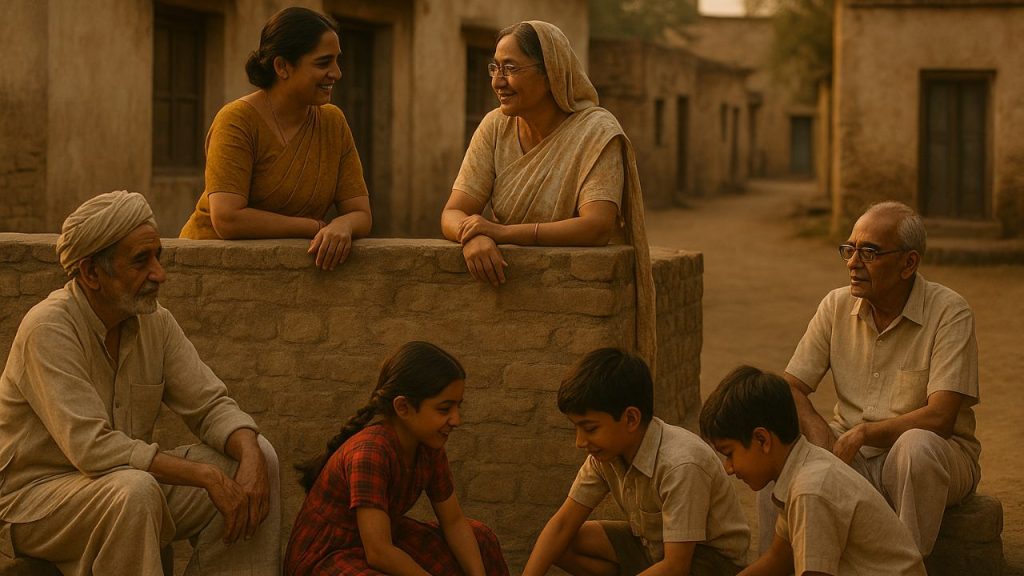In a world already burdened with stress, conflict, and anxiety, one might ask—why are our movies increasingly soaked in blood, aggression, and cruelty? Indian cinema, known for its soul-stirring music, rich storytelling, and cultural vibrance, now seems to be leaning heavily into violent, dark narratives. It raises an important question for our times: Is all this onscreen violence necessary, and what is it doing to us as a society?
In this article
The Psychological Impact of Violence on the Brain
Scientific research has repeatedly shown that exposure to violent content desensitizes the brain, dulling emotional responses and reducing empathy over time. When people—especially children and young adults—are constantly fed images of cruelty, revenge, and brutal behavior, the brain begins to normalize these patterns. This leads to altered perceptions of conflict resolution, where aggression seems not only acceptable but effective.
Studies in neuroscience show that repeated exposure to violent media can increase cortisol (the stress hormone), disrupt sleep, and even affect long-term emotional development. We often assume fiction is harmless—but the brain does not always distinguish sharply between screen and reality.
Why Are Censors Turning a Blind Eye?
There was a time when the Central Board of Film Certification (CBFC) played an active role in protecting audiences, particularly the younger generation, from excessive gore, abusive language, and disturbing themes. But somewhere along the way, commercial interest and creative freedom began overshadowing social responsibility.
Today, films with graphic scenes of rape, murder, drug abuse, and torture get a green light with minimal cuts and often a soft warning. Are we really protecting creative freedom, or are we prioritizing box office over basic human decency?
The Media’s Role in Shaping Society
Media is more than just entertainment—it shapes beliefs, behaviors, and aspirations. It influences how we see others, how we see ourselves, and even how we raise our children. When movies glorify revenge, show abuse without accountability, and present violence as entertainment, they are not just telling a story—they are setting a tone for society.
This is why the media industry carries a moral responsibility. Just as a teacher influences students, content creators shape the audience’s mindset. Stories can inspire or corrupt. They can heal or harm. The line between these outcomes is thin—and media professionals must tread it with awareness and care.
How Violent Movies Are Eroding Relationships
The damage doesn’t end with the individual viewer—it extends into the very fabric of our relationships. From families to friendships to romantic bonds, the ripple effects of violent storytelling are becoming impossible to ignore.
Normalizing Aggression in Conflict
Many films today glorify the idea that conflict resolution lies in shouting, intimidation, or brute force. This conditioning often spills into real life, where even minor disagreements escalate because violence is seen as strength, not failure.
Decreased Empathy, Emotional Disconnect
Excessive violent content leads to desensitization, which erodes empathy—the backbone of every meaningful relationship. Without empathy, conversations turn cold, misunderstandings grow, and people begin to live emotionally disconnected lives under the same roof.
Toxic Expectations in Love and Family
Cinema often equates dominance with love or portrays toxic masculinity as attractive. These repeated patterns distort perceptions of what a healthy relationship looks like. In the real world, this leads to unrealistic expectations, lack of emotional safety, and even abuse.
Children Mimic What They See
Kids absorb more than we think. When violence is packaged as heroism or justice, children internalize it. They learn to shout, hit, or manipulate when frustrated—because that’s what the screen taught them. This disrupts emotional development and social skills.
Trust Erodes, Anxiety Rises
A home where violent media is a constant companion can feel unpredictable. Over time, this environment may lead to mistrust, communication breakdowns, and emotional withdrawal among loved ones.
The Need for a Cultural Reset
As a society, we need to ask some hard questions:
- Why is violence the shortcut to “entertainment”?
- Why are filmmakers rewarded for trauma-centric narratives?
- Can we not create compelling stories without glorifying bloodshed?
The solution isn’t censorship alone. We need a cultural shift in what we celebrate and consume. We need to encourage filmmakers to dig deeper into storytelling—to show strength in character, not just fists. To present justice through empathy, not just guns. To spark conversations, not just chaos.

